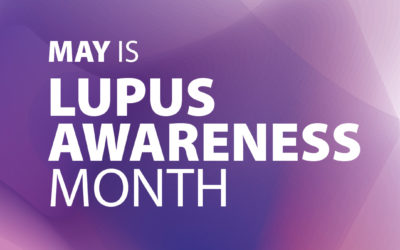The Black Women’s Agenda Inc. Applauds the U.S. Supreme Court Affordable Care Act Decision
The Black Women’s Agenda Inc. applauds the recent U.S. Supreme Court Affordable Care Act decision. On June 25, 2015, the United States Supreme Court ruled that consumer subsidies can continue flowing through all of the Affordable Care Act’s health insurance marketplaces, effectively wiping away any further threat to the landmark law. In King v. Burwell, the Court held that the Affordable Care Act authorizes tax credits for insurance purchased through the federal insurance marketplace, as well as on state-operated insurance exchanges. The case turned on a single word in the 2,000-plus-page statute, in a clause authorizing the tax credits for policies purchased on an exchange established “by” the state. It has been reported that only 13 states and the District of Columbia currently run their own exchanges.
Chief Justice Roberts delivered the majority opinion, in which Justices Kennedy, Ginsburg, Breyer, Sotomayor and Kagan joined. Justice Scalia filed a dissenting opinion in which Justices Thomas and Alito joined. The Court held that the words must be read in context, and the overall context of the law is clear that the tax credits were intended to be offered countrywide. Challengers had argued that the tax credit subsidies could only be provided in states that have established their own marketplace exchanges. The Rand Corporation estimated that 70 percent of the 6.4 million people who receive tax credit would have had their coverage dropped.
The Court interpreted the ACA as making tax credits available for insurance purchased on any Exchange created under the Act. The Court reasoned that: “those credits are necessary for the Federal Exchanges to function like their State Exchange counterparts, and to avoid the type of calamitous result that Congress plainly meant to avoid”. The Court concluded that: “Congress passed the Affordable Care Act to improve health insurance markets, not to destroy them”. The Court ruling keeps intact the subsidies in as many as 37 states that depend on the federal insurance marketplace. This landmark 6-3 decision is significant to millions of African American women and their families that BWA represents who now have secure access to health insurance.
One of the BWA’s public policy priorities is to ensure that health care is accessible and affordable for African American women and their families. The Affordable Care Act has made health insurance more affordable and available for millions of Americans. Ten million previously uninsured individuals now get coverage through the marketplaces created by the law. In the last two years, another 11 million are now enrolled in Medicaid in states that have expanded their Medicaid programs.
The Act addresses significant health care disparities affecting African Americans. While African Americans suffer from several illnesses at higher rates than non-Hispanic white Americans, they are 55 percent more likely to be uninsured. In 2013, the proportion of uninsured African Americans was 17 percent. (See Affordable Care Act and African Americans at hhs.gov/healthcare). Now millions of African American women and their families are benefitting from the coverages and protections provided by the Act. An estimated 5.1 million African American women with private health insurance now have guaranteed access to women’s preventive services, including mammograms and prenatal screenings without coinsurance or deductible requirements. Nearly 8 million African Americans with a pre-existing condition can no longer be denied coverage because the Act prohibits insurers from denying coverage based on a preexisting condition.
For the second time, the Supreme Court has ruled that the Affordable Care Act is the law of the land. President Obama stated: “In America, health care is not a privilege for a few but a right for all”, and that the Affordable Care Act is here to stay. The President’s health care legacy is now firmly secured.
July 14, 2015
Black Women’s Agenda, Inc.
OTHER NEWS
SPOTLIGHT FEATURE ON JACK AND JILL OF AMERICA, INC.
To be valued and loved. To know who you are and that you have the power to make a
difference. These are the aspirations that most mothers have their children. In 1938, in the midst
of the Great Depression, twenty African-American mothers in Philadelphia came together not to
hope or to dream, but to provide the opportunities, experiences, and life lessons that would
enable their children and others to live these truths. Their group became Jack and Jill of
America, Inc. – an organization that’s mission is as relevant today as it was some 80 years ago.
JUNE IS AFRICAN AMERICAN MUSIC APPRECIATION MONTH
This June, The Black Women’s Agenda, Inc. (BWA) joins our nation in celebrating the 40th Anniversary of African American Music Appreciation Month.
The month-long observance, which was first inducted on June 7, 1979, by President Jimmy Carter was christened as Black Music Month. President Barack Obama renamed the national observance as African-American Music Appreciation Month. The observance was created to recognize and celebrate the historical influence African-Americans have had on the music industry and is intended to pay homage to the many artists, writers, songs and albums that have inspired music lovers and shaped American pop culture.
May Is Lupus Awareness Month
In honor of Lupus Awareness Month, the Lupus Foundation of America released a new survey they recently commissioned which reveals the need for better public understanding of this devastating autoimmune disease and why early diagnosis is so important.
According to the Lupus Foundation of America, “The survey sample was designed to be reflective of the U.S. population’s diverse demographics. Women of color are at two to three times greater risk for developing lupus than Caucasian women. However, over half of respondents (62%) didn’t recognize that minority populations were disproportionately impacted by lupus.
Minority women tend to develop lupus at a younger age, experiencing more serious complications and have higher mortality rates. This was reflected among minority respondents who indicated they were also more worried about developing the disease than others surveyed: 44% compared to 29% of the sample overall.”
© 2025 The Black Women’s Agenda, Inc. All Rights Reserved. Privacy Policy








